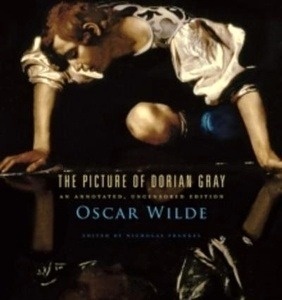The Picture of Dorian Gray annotated uncensored edition

Editorial Harvard University Press
Fecha de edición abril 2011
Idioma inglés
EAN 9780674057920
Libro
encuadernado en tapa dura
Resumen del libro
The Picture of Dorian Gray altered the way Victorians understood the world they inhabited. It heralded the end of a repressive Victorianism, and after its publication, literature had--in the words of biographer Richard Ellmann--"a different look." Yet the Dorian Gray that Victorians never knew was even more daring than the novel the British press condemned as "vulgar," "unclean," "poisonous," "discreditable," and "a sham." Now, more than 120 years after Wilde handed it over to his publisher, J. B.
Lippincott x{0026} Company, Wilde's uncensored typescript is published for the first time, in an annotated, extensively illustrated edition. The novel's first editor, J. M.
Stoddart, excised material--especially homosexual content--he thought would offend his readers' sensibilities. When Wilde enlarged the novel for the 1891 edition, he responded to his critics by further toning down its "immoral" elements. The differences between the text Wilde submitted to Lippincott and published versions of the novel have until now been evident to only the handful of scholars who have examined Wilde's typescript.
Wilde famously said that Dorian Gray "contains much of me": Basil Hallward is "what I think I am," Lord Henry "what the world thinks me," and "Dorian what I would like to be--in other ages, perhaps." Wilde's comment suggests a backward glance to a Greek or Dorian Age, but also a forward-looking view to a more permissive time than his own, which saw Wilde sentenced to two years' hard labor for gross indecency. The appearance of Wilde's uncensored text is cause for celebration.
Biografía del autor
Novelista, poeta, crítico literario y autor teatral de origen irlandés, gran exponente del esteticismo, Oscar Wilde conoció el éxito desde sus comienzos gracias al ingenio punzante y epigramático que derrochó en sus obras, dedicadas casi siempre a fustigar a sus contemporáneos. Defensor del arte por el arte, sus relatos repletos de diálogos vivos y cargados de ironía provocaron feroces críticas de los sectores conservadores, que se acentuaron cuando Wilde fue acusado y condenado por su homosexualidad, lo que originó el declive de su carrera literaria y de su vida personal. Entre sus obras destacan las cuatro comedias teatrales El abanico de lady Windermere (1892), Una mujer sin importancia (1893), Un marido ideal (1895) y La importancia de llamarse Ernesto (1895), El fantasma de Canterville o El retrato de Dorian Gray, su única novela.








